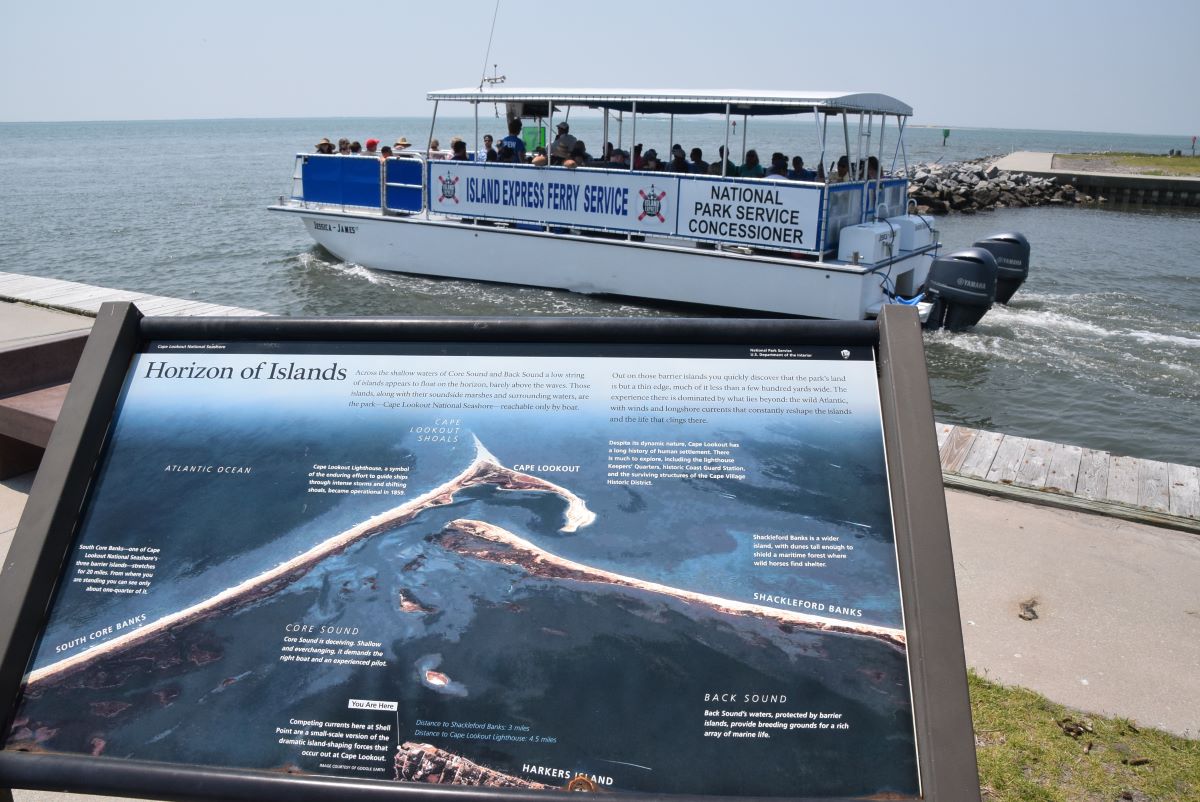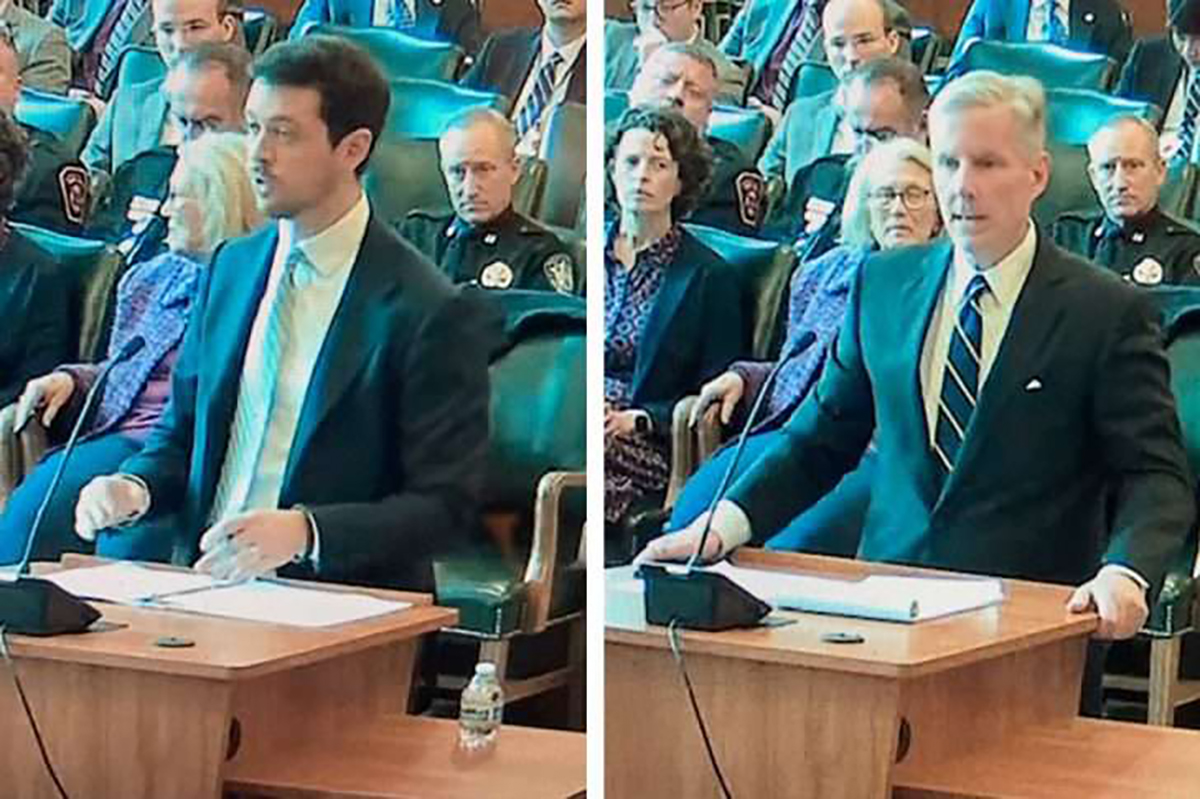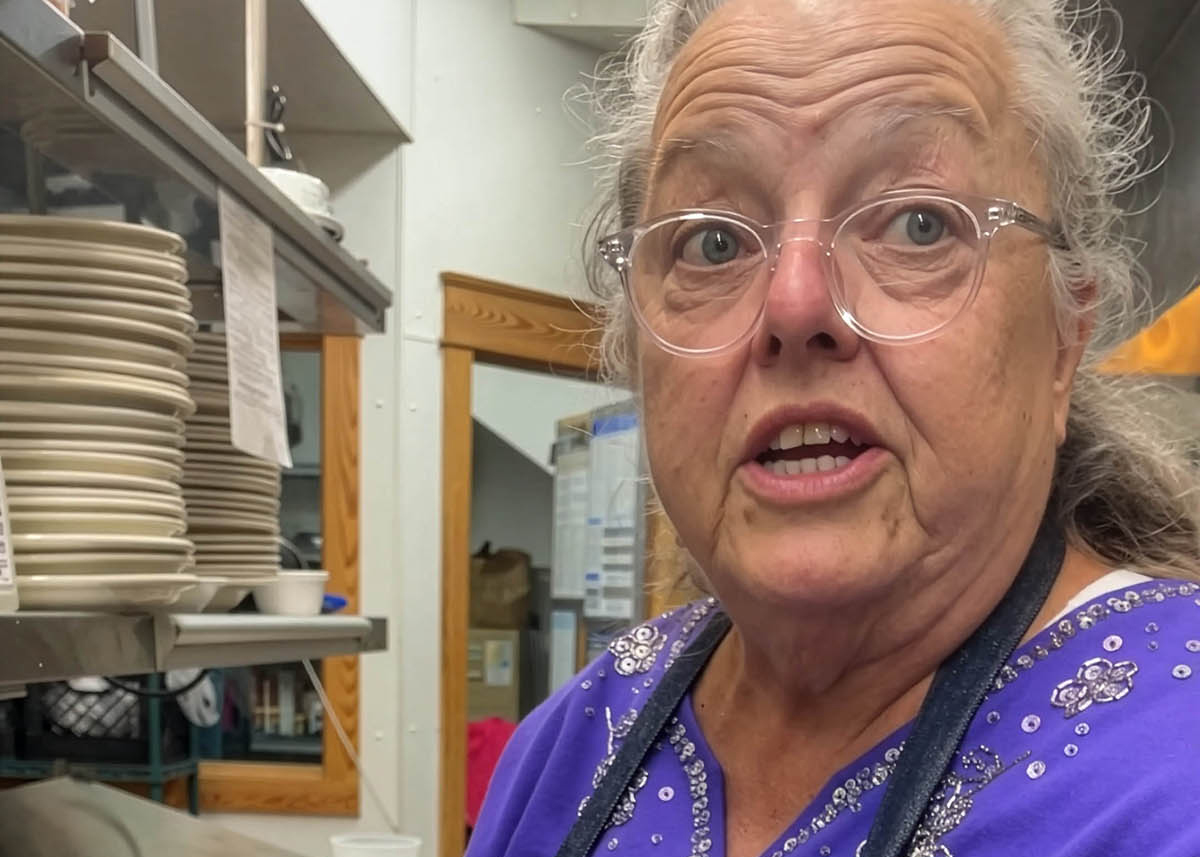
Plans to phase out during the next decade single-use plastic products on public lands — places like the Cape Lookout and Cape Hatteras national seashores — are in the works, and while optimistic, conservation groups have their concerns.
Department of the Interior Secretary Deb Haaland announced Thursday the department-wide approach to reduce plastic pollution and a “first-ever effort” for the department to factor the climate crisis into all operations. The announcement came during the White House Summit on Building Climate Resilient Communities, which was broadcast on YouTube.
Supporter Spotlight
“Everyone here today understands these simple truths. The climate crisis is real. It’s happening now. And it’s uprooting lives across our country,” she said during the summit. “It is abundantly clear that even as we transition our economy toward a sustainable future, adaptation and resilience must be core pillars of our collective climate response.”
Haaland signed her Secretary’s Order 3407 on World Ocean Day June 8, 2022, directing the department “to reduce the procurement, sale and distribution of single-use plastic products.”
“I issued a secretary’s order to phase out the sale of single-use plastics on interior-managed lands by 2032. Today, we are telling you how we’re going to get it done,” she said.
Each bureau has sustainable procurement plans outlining approaches and schedules to phase out single-use plastic products such as plastic bottles and bags, and to implement improvements like the installation of water bottle filling stations across interior manage lands.
Related: Interior order phases out single-use plastics on public lands
Supporter Spotlight
“Our department is also taking a concerted look at how we operate and make decisions about the future in the face of the climate crisis,” Haaland continued, adding that it should be part of every decision.
That look includes four new department manual policies “to strengthen and enhance mission critical decisions and activities” and also reflect the department’s “commitment to using science, indigenous knowledge and landscape-scale management as the foundation for departmental decisions,” she said.
The department has adaption and resilience projects across the country.
In northeastern North Carolina, Haaland said the department is working with partners and local officials to “advance transformational peatland restoration work. Healthy forested peatlands offer some of nature’s best carbon storage while protecting coastal communities from threats like sea level rise, flooding and wildfires, but extreme climate fueled conditions combined with increased wildfire risks threaten these essential ecosystems and the communities and wildlife that depend on them.”
To advance nature-based solutions, more than $27 million from the Inflation Reduction Act has gone to restoration efforts for the Albemarle-Pamlico estuary, which Haaland said is to fortify communities against the “mounting impacts of climate change.”
The U.S. Fish and Wildlife Service and its partners have restored 37,000 acres of peatlands already at Pocosin Lakes National Wildlife Refuge, over half of the project’s goal.
Related: Refuge exudes natural diversity, wonders of pocosin lakes
“By restoring the natural hydrology and regional peat soils. The department is ensuring that communities and local habitats can enjoy the region’s countless ecological services from clean air and water and soil to storm flow resilience long into the future,” she said.
The plans Haaland announced Thursday are in support of the president’s executive order that called for federal agencies to take actions to reduce and phase out procurement of single-use plastic products to the maximum extent practicable.
Interior officials said that the plans published Thursday will be updated in 2024 to include additional details on where and how single-use plastics will be eliminated.
Since the signing of the secretary’s order last year, officials said that national, wildlife refuges and conservation lands have been installing water bottle filling stations, increasing recycling, and working with concessionaires to reduce sales of single-use plastic bottles and use of plastic utensils, bags, straws and other plastic products.
Cape Lookout National Seashore Chief of Interpretation and Education Nate Toering said Friday that the seashore is already ahead of the curve on eliminating single-use plastics in many areas throughout the park.
“We have worked closely with park partners to achieve this. For example, Eastern National, who runs our park stores, switched from issuing plastic bags with sales, and instead offers inexpensive reusable bags for purchase,” Toering explained. Adding that service providers such as Island Express Ferry Service have transitioned to selling water and other drinks in cardboard boxes and cans instead of plastic bottles.
“So, while there is always room to improve, Cape Lookout is well on its way toward achieving this goal. With over 50 miles of beaches and already tackling a never-ending marine debris problem — including lots of plastics — it’s a relief to know that we’re at least becoming less of the problem and more of the solution,” he said.
Coastal Carolina Riverwatch Executive Director Lisa Rider told Coastal Review Friday she feels that phasing out single-use plastics is achievable, but it will take a long-term commitment and accountability from decision-makers on all sides of the political spectrum.
“Plastic waste and pollution are industry problems that have burdened consumers for generations. I am hopeful that government intervention and sustainable procurement practices set by the Department of the Interior will show progress in pollution prevention. I am hopeful that this effort will further support industries that provide alternatives to single-use plastic products,” Rider said. “With all that said, the burden remains on us consumers and constituents to hold decision-makers, now and in the future, responsible for protecting our quality of water and life from plastic pollution.”
Oceana Campaign Director Christy Leavitt said in a statement Thursday that “Today our national parks are one step closer to being plastic-free.”
The organization “applauds” Haaland’s “commitment to phase out the sale and distribution of single-use plastic products in national parks and other public lands” but, the department should “implement the plans more quickly.”
“The National Park Service, Fish and Wildlife Service, and other bureaus of the Interior Department should immediately phase out the most problematic plastics, including plastic foam food and beverage containers and plastic bags. Protecting our national parks from plastics is an important step toward a plastic pollution-free future and can’t come soon enough,” she said.
A longtime advocate for ending plastics pollution, Bonnie Montelone said she has been studying plastic pollution since 2008, “when this topic was just starting to capture the global conscience.”
She is founder and executive director of Plastic Ocean Project, a Wilmington-based organization working to end plastic pollution.
Though plastic production and use has nearly doubled from 245 metric tons to nearly 470 metric tons since then, Montelone continued. “We are at the tipping point of real change.”
Montelone added that another federal agency, the Department of the State, is taking strides to end plastic pollution, as well.
She attended the launch Sept. 20 of End Plastic Pollution International Collaboration, or EPPIC, in New York City, a new public-private partnership.
With $15 million from the Department of State, the International Union for the Conservation of Nature, the Aspen Institute and The Ocean Foundation’s Plastic Initiative, both based in the U.S., and Searious Business in the Netherlands were able to initiate the multistakeholder effort.
“We know all too well the devastating impacts of plastic pollution on our planet. The Biden-Harris Administration is committed to finding real solutions to this global crisis at home and abroad. EPPIC will create the stage to motivate ambitious commitments and actions to combat plastic pollution,” Jose W. Fernandez, Under Secretary of State for Economic Growth, Energy, and the Environment said in a statement.
EPPIC aims to spur global action on plastic pollution by supporting projects worldwide to make the full lifecycle of plastic more sustainable, starting with efforts to change the design and use of plastic products. The EPPIC will build on established partnerships and networks to avoid duplicating efforts, the website said.
“Recognizing the need to change the design and use of plastic products in order to make plastic’s full lifecycle more sustainable, the federal government is now supporting collaboration with governments, businesses, civil society, the philanthropic and NGO communities,” Montelone said.
Though this is encouraging, Montelone said, if consumers understood that every time we buy food or drink packaged in plastic, we are voting for more of the same.
“But more importantly, if we took a look at that plastic and said, ‘I’m going to be eating and/or drinking the chemicals from this packaging and when I’m done with it, the environment, whether in a landfill or not, is going to also consume those chemicals,’ people might reconsider,” she said.







